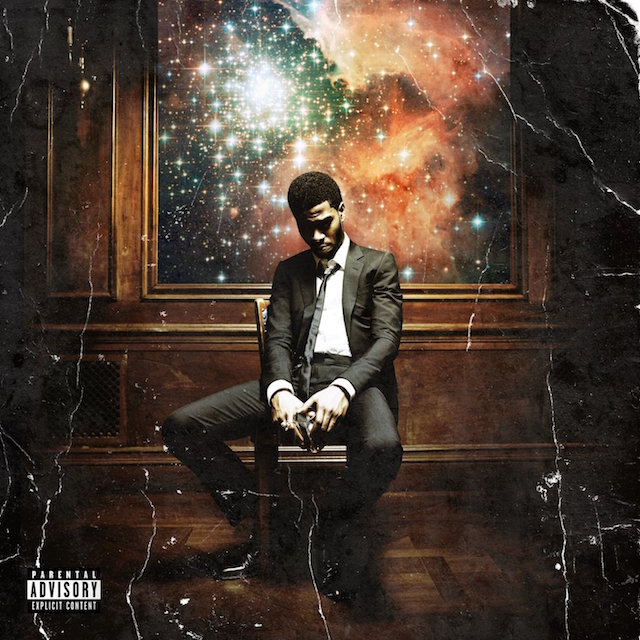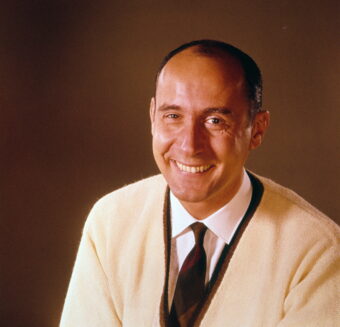Release Date: November 09, 2010
Label: G.O.O.D./Universal Motown
Kid Cudi is one fucked-up dude. This is not Web-lurking speculation. It’s been the rapper’s ongoing, on-the-record confession since he proclaimed, almost jauntily, “I’m looking for a substance to drown in,” on the first song, “Down & Out,” on his first mixtape, 2008’s stoner picaresque A Kid Named Cudi. Last year’s ambitious, if unfocused, official debut, Man on the Moon: The End of Day, reeled with references to “night terrors,” compulsive drug use, and his deceased father. “A happy ending would be slitting my throat,” he mused.
Yet Cudi expresses this heavy-hearted disarray with a brashly naive yearning. It’s as if admitting his flaws is his creative passkey, like horny solipsism is for, say, John Updike or Snoop Dogg. And trying to frame that lyrical fucked-upness so it’s not trite or pathetic pushes his music into intriguingly skewed places (the laconic dance-club drift of “Day ‘N’ Nite”). Like Drake and benefactor/collaborator Kanye West, Cudi works a rapping/singing hybrid that prizes raw emotion. But he shies from their will to power; Beck’s waggish melancholy and shrugging disregard for genre is a closer fit.
That said, Man on the Moon II: The Legend of Mr. Rager, the sequel to The End of Day, is a revelation, boldly reshaping Cudi’s sound — with vivid production by Emile, Plain Pat, the Cool Kids’ Chuck Inglish, Jim Jonsin, Diplo, and others. The album’s narrative (yes, there is one this time, and it mercifully does not involve a Biography Channel voice-over by Common!) follows an idealistic artist who gets trapped in hip-hop’s make-it-rain imaginarium and emerges a predictably stupefied casualty. His cautionary journey takes the music in a makeshift ’90s-alt-rock direction, jacked up on jittery beats that eerily mirror the rush and crash of someone who’s been given way too much access to way too much ass. The dizzy friction between rap’s grasping for control and rock’s desire to lose it entirely give Cudi’s confessions a dicey, volatile edge.
On album opener “Horizon,” he adopts the role of semi-reliable narrator (as if): “Hello, how is everyone doing?” he offers over a keyboard twinkle; but when he claims “I’m your big brother” on “Revofev,” it’s got an ominous tinge, as strings crescendo, percussion rattles, and psych guitar lurches. “Where will you be for the revolution?” he asks, apropos of, well, the type of shit you say when you’re high on coke trying to be meaningful. By the filmic swirl of “Don’t Play This Song,” he’s gone, double-time spitting about drugs, predatory girls, his mom. “Be careful,” a female chorus implores.
“Marijuana” grows eerier, as he forcefully articulates why he needs to be stoned to balance the craziness in his head, against a keytar-ish blare and chattering drums. Darkness creeps on “Groovin’,” “Mojo So Dope,” “Wildin’ Cuz I’m Young,” and “Maniac” (featuring Cage, playing the psychotic fool), as Cudi gets punchier the more he parties.
“Mr. Rager,” a would-be arena anthem with a teasing guitar riff that never ascends, is the ingenious anticlimax. Cudi singsongs to himself — the wayward title character — entreating, “Tell me where you’re going…when will the fantasy end?” He gently envies the birds just “singin’, flyin’ around.” And with good reason, considering the fiendishness haunting him elsewhere. Mary J. Blige wails, “Don’t you worry,” on the outro, but Cudi’s off again, still struggling to heed his own album’s advice.





